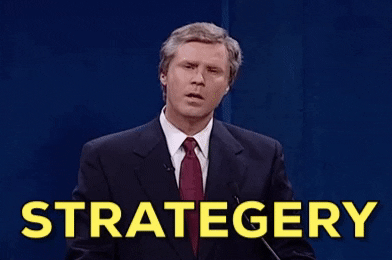No Results Found
The page you requested could not be found. Try refining your search, or use the navigation above to locate the post.

2020 will go down as the weirdest and most disruptive year for business in recent history. Organizational leaders and business owners are managing massive changes and looking at scenarios that seem to alter on a weekly basis. While many are looking to completely revamp their marketing strategy, mostly everyone is looking to modify their marketing plan and budget for the rest of the year. We’ve put together some practical ideas for getting your marketing going in the coming months.

1. Take Care of Your Customers
Communicating with your customers is more important than ever. Take a proactive approach and let them know how your organization is dealing with reopening, how you are adapting to keep your employees and customers safe, and how you can continue to provide them with phenomenal products and services. Be available to help them solve their problems in any way that you can and communicate that over and over again. Avoid clichés and overused statements and focus on being sincere and authentic.
Even with a thinning budget, figure out creative ways to provide extra value and strengthen relationships. If you take a true customer-centered approach you will strengthen the value of your brand with your clients.

If your organization has suffered severe disruption, it is not the time to be paralyzed with fear over your marketing. Even now, we’re working with clients on new marketing strategies and tactics to help them take advantage of the current situation while also identifying future opportunities. For many of our clients, that means developing webinars, creating social media web videos, updating neglected websites, designing digital advertisements, and implementing automated marketing and email marketing campaigns.

We are not at all advocating for changing your corporate identity or engaging in sleazy marketing tactics, we are suggesting it is time (for most organizations) to develop clear messaging about your differentiating factor and unique value. We’ve implemented this principle ourselves by developing a new website that more accurately communicates the problems we can solve for certain clients and beginning inbound marketing practices and digital advertising for the first time in our company’s history. It’s important that your marketing quickly and concisely tells people who you are, what you do, and why they should care.

4. Take Advantage of Free Marketing Platforms
If your organization has not taken a massive hit during this pandemic, you should be investing even more money in your marketing. Research has shown that this tactic yields success during economic downturns. But if you need to tighten your marketing budget there may be free marketing tools that you can utilize while you get your organization back on its feet.

As we begin to come out of the pandemic and return to normalcy, many small businesses are looking for guidance to get their marketing back on track. Here are a few simple steps you can take to get started:

1. Know Your Differentiating Factor: If You Don’t Know It, Nobody Will
What makes your organization unique? This can be a difficult question to answer, but if you want to be successful, knowing what makes your business different from others is essential. This will be a critical factor in the development of new messaging and an updated marketing plan.
a. What problems do you solve in a way that your competitors don’t?
b. What do your users think are your strengths?
c. Can any of your competitors’ weaknesses be turned into an opportunity?
d. What are some user needs (based on the common complaints they voice about the product/service) that can be turned into potential growth opportunities?
e. What are some market/industry trends that you could foresee and prepare for?
f. What can you offer that NOBODY else is talking about?

Identifying your target audience takes consideration and patience. The more you can empathize with the audience, the better. Which is why we recommend developing Buyer Personas and Buyer Profiles.
Regardless of the profile you build, be sure to ask yourself these key questions:
a. What motivates them to purchase from you? Do they have any goals?
b. What prevents them from purchasing from you? Do they have any fears or are they facing any challenges?
c. What problem are you solving for them? Do they have multiple problems?

3. Revamp Your Marketing Plan: Something to be Excited About, Not Scared of
This is an opportunity to review your marketing budget with a fresh set of eyes. By doing this, you can eliminate the marketing efforts that aren’t measurable or reaching your target audience. Once you’ve decided what stays and what goes, you can focus your marketing efforts on measurable items that will both reach your new audience and drive home your differentiating factor.
a. Does your target audience use the same marketing channels as you?
b. Are you afraid to give up traditional forms of advertising that aren’t producing results?
c. Do you take advantage of digital advertising tactics and measure their effectiveness?
d. Are you spending marketing dollars on things that are unnecessary?
e. Is your marketing program being run efficiently and strategically?
Knowing what makes you different is what can make your organization great. And there is no better time than the present to confidently create a strategic marketing plan that positions your organization for growth in the years ahead.
Did you enjoy this article? We thought you might, which is why you should take a look at these:


Marketing is the least understood area of a business, which is what makes it easy to cut from your budget when a global pandemic hits. Yet, history has proven time and again that recessions provide a golden opportunity to increase brand awareness and capture more market share when the economy rebounds.
During past recessions, many organizations panicked and drastically cut their marketing and advertising budgets. Others, however, took a more strategic approach. Understanding that negative economies rebound, they maintained or increased their marketing and advertising budgets while pivoting their marketing efforts to better position themselves for the recovery. In the end, these companies strengthened their brand and position in the marketplace.
Take a look at how this has played out throughout some of the major historical economic downturns:
| Recessionary Period | Conclusion | Studied by |
| 1920s | Largest sales increases reported by companies that increased advertising. | Harvard Business Review |
| 1970 | Increased advertising provided sales and/or profit advantages in years following the recession. | ABP and Meldrum & Fewsmith |
| 1974-1975 | Maintaining advertising during the recession produced higher sales and net income during and after the recession. | ABP and Meldrum & Fewsmith |
| 132% 5-year sales growth for companies that advertised during the recession. | McGraw-Hill | |
| 1981-1982 | 275% sales growth by 1985 for companies that advertised through the recession. | McGraw-Hill |
Source: https://www.msi.org/reports/should-firms-increase-advertising-expenditures-during-recessions/
While there are ways to trim your marketing budget without hurting your business, Peter Drucker explains why maintaining or increasing your marketing—even during challenging economic times—is critical:
“Because the purpose of business is to create a customer, the business enterprise has two—and only two—basic functions: marketing and innovation. Marketing and innovation produce results; all the rest are costs. Marketing is the distinguishing, unique function of the business.”
Your ability to keep and attract customers will determine the success of your business. So, marketing and advertising are critical to your organization’s survival as the economy opens back up, as customers react to record high unemployment, new COVID safety measures, and restricted access to certain services.
“I have yet to see any study that proves timidity is the route to success. Studies consistently have proven that companies that have the intelligence and guts to maintain or increase their overall marketing and advertising efforts in times of business downturns will get the edge on their timid competitors.”
– J. Welsey Rosberg, Senior Vice President, Meldrum & Fewsmith
Like what you read? Check these out:

When calculating your marketing budget, all the costs related to marketing and advertising should be included, such as:

Note: On-site marketing staff costs may be considered an HR expense, but should also be included when you calculate marketing ROI.
Unfortunately, knowing what to include in your budget doesn’t tell you how much you should be spending. Here are some simple guidelines that can help you get started:
The U.S. Small Business Administration suggests spending seven to eight percent of gross revenue on marketing and advertising if your company has annual sales of $5 million per year or less, and your net profit margin is in the 10 to 12 percent range.
Your marketing budget may increase in some years because you are developing your brand or making significant changes to your marketing plan. If you re-brand or reposition your company, develop a new website, start social media marketing, or implement marketing automation with ad retargeting, you will likely exceed your budget numbers, and for good reason. You need to invest more to build the foundation of any marketing funnel in your plan. Otherwise, your marketing tactics may struggle to get the desired results.
When it comes to determining a marketing budget, it’s important to keep in mind that your plans for growth will affect the amount you need to allocate. If you have plans to grow your organization’s revenue, need to improve the foundations of your marketing (listed above), or need to acquire an in-house marketing staff person or work with an outsourced marketing agency, you will want to allocate a higher percentage to the marketing budget.
“If you are marketing from a fairly static annual budget, you’re viewing marketing as an expense. Good marketers realize that it is an investment.” – Seth Godin
Liked this article? Check these out!

We are months into a worldwide pandemic, and there are still many unknowns. But, two things are certain:
It’s common to put more pressure on marketing during a recession. Expectations are that it will achieve more with fewer resources while still providing a high return on investment. While this is possible, under current conditions it requires reallocating marketing dollars to digital marketing tactics. An article from Forbes says it best:
“We are in uncertain times, but with the increase of remote working and a collaborative approach, companies are turning to digital channels and embracing the transformation. We have seen a real spike during the last few weeks from companies wishing to create or update websites, launch new eCommerce channels and create social media campaigns focused on home-workers and a real focus on using influencers and SEO to reach new audiences.”
For businesses that have been slow to transition from traditional to digital marketing, time is running out. Some businesses have transitioned their budgets to include digital channels. But, they can gain valuable market share by accelerating that transition and fully embracing a digital strategy. As we’ve previously discussed, businesses that maintained or increased their advertising budgets during a recession actually received positive results in the marketplace.

In the pre-coronavirus world, one of our technology clients relied heavily on trade shows and other events to generate leads. When that channel disappeared under social distancing restrictions, we realigned their budget to establish an automated marketing program coupled with a digital and retargeting advertising program. Working with their sales and marketing department, we developed a strategy to digitally educate their target audience on the problems the company solves, drive online demos signups, and retarget website visitors with advertisements to drive them back to the client’s website.

For one of our municipality clients, we were consistently creating social media content that produced impressive engagement numbers with their audience. However, their audience size was stagnating. So, we worked with them to create a social media advertising plan and budget that included boosting posts, social media ads, and interacting more with followers. Over the course of just a few months, their social media account likes grew by thousands.

CASE STUDY 3: Advisors to Advisees
It’s not only our clients that needed to reassess their marketing strategy as a result of the pandemic. We also took the opportunity to change our own strategy. We developed a new website with messaging and information targeted to our ideal client personas. The website is also optimized to work with marketing automation and digital advertising programs that we are currently developing.
It’s decision time for many businesses, especially when it comes to marketing budgets. Businesses that down-size their marketing and advertising budgets in reaction to current social and economic conditions are in danger of losing a significant amount of business. Or, worse yet, losing their business entirely. Those that adjust their strategy, invest in developing a strategic marketing plan, and transfer their marketing and advertising dollars to digital will have a significantly better chance for success in the year ahead.
Liked this article? Here are a couple more we thought you’d be interested in:

How can you sell and market online if you rely on foot traffic sales?
As we traverse through this changing world, one thing is clear: business is not the same as usual. Even as businesses begin to reopen, operations won’t look as they once did. Whether you have to function at reduced capacity, or customers are staying closer to home, this pandemic will impact your revenue projections for 2020.
If you operate a traditional brick-and-mortar business that relies on customers coming to your location for sales, what can you do? How can you sell to customers that aren’t coming through the door? How can you continue to see the same volumes that you saw pre-pandemic? One word: Online.
This virus has changed the way we use the internet, but it is also going to change the way we do business. As work, schools, and families transitioned home, they made many changes to their lifestyle and doing business online became the new normal.
If you’re feeling underprepared or overwhelmed, it’s okay. Here are five easy tips that will impact the transformation of your business into the digital world.

Do you have a social media presence? Are you selling online through social networks? Whether you are utilizing a specific inventory shop or simply posting items for sale, this is a great strategy. Customers may not be browsing in your store, but they are browsing online.
We have seen many businesses use social media to develop creative sales methods during this pandemic. Consider having a live auction on Facebook Live for selling overstock, a weekly special that requires an entry to win, or a “deal of the day” that can only be purchased through Instagram. The possibilities are endless!

Do you have gift cards available? Can customers easily buy them online? While we are “all in this together” and many want to #BuyLocal and #SupportLocal, your customers may not feel ready to engage as they once did. Make it easy for the community to support your business by purchasing gift cards. Why do you think Amazon gift cards are such a popular gift? They are easy to buy and easy to give.
If you don’t have gift cards yet, you are just a few clicks away from being able to sell them in-store and online.

Google is doing its best to help all organizations during this time and has made several changes to help maximize their online presence.

4. Create a Community
Staying connected while staying apart has proven to be one of the biggest challenges for organizations during this pandemic. How can you connect with your customers virtually and create the same environment when you aren’t in all one location? It’s time to create your own community.
Start a Facebook Group for VIP Insiders. Host virtual Zoom parties or Google Hangouts. Having a live event at your establishment? Steam it online and offer “event kits” that viewers can order ahead of time to participate at home. The important thing is to stay connected with customers and stay front-of-mind so when it is safe to reopen, you are fully booked.

As you get back to business, think about what you can do differently. People are bored. People are tired. What can you offer them that will make this situation a little more bearable (and make you a profit at the same time)? Here are a few examples others have done:
This isn’t a complete list, but it’s a great place to start. It is easy enough to accomplish in one weekend, it doesn’t take a technology expert to implement, and it is something your business will need to survive.
If this feels overwhelming to you, you aren’t alone! Outsourcing some or all of this work is an option and may end up saving you time and money in the long run.
Liked this article? Check out a few others like it!